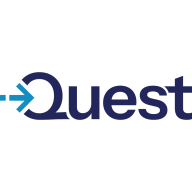

Informatica IDMC and erwin Data Modeler compete in data management and modeling spaces. Informatica IDMC seems to have the upper hand due to its strong integration capabilities and robust performance across various domains.
Features: Informatica IDMC offers seamless data management integration, strong support for multiple domains, and robust data performance capabilities. Erwin Data Modeler provides detailed visual database representation, multi-level entity structuring, and quick synchronization of data models.
Room for Improvement: Informatica IDMC needs improvements in data stewardship, user interface design, and enhancing integration capabilities. Users report issues with UI and performance. Erwin Data Modeler can enhance its modeling capabilities, improve the user interface, and expand support for broader database platforms.
Ease of Deployment and Customer Service: Informatica IDMC supports varied deployment models like public and private clouds, offering infrastructure flexibility. Customer service feedback is mixed, with both commendation and suggestions for better support responsiveness. Erwin Data Modeler is largely on-premises, supporting concurrent usage, and user satisfaction varies.
Pricing and ROI: Informatica IDMC's pricing can be a limitation for some due to its high costs, although many find the features justify it. It uses a usage-based pricing model that aids scalability. Erwin Data Modeler is seen as expensive, especially for individual consultants, but offers flexible licensing for concurrent users. Both platforms offer feature-rich benefits potentially offsetting their high costs through a high ROI when fully utilized.
If three engineers save ten hours each per month using erwin Data Modeler versus manual modeling, that equals three hundred sixty hours saved per year.
It replaces manual charting in Visio with a structured tool, providing significant return on investment.
If the modeling is compromised, then the entire structure will be compromised.
Leadership prefers to utilize third-party tools, such as Snowflake, which has both storage and ELT features.
The stability and performance remain issues.
Compared to Collibra Catalog, where the value is noticeable within six months.
The quality and speed of their support are excellent; everyone is very helpful, and they can solve problems quickly.
This rating reflects my ability to effectively utilize the tool and get support for licensing issues, installation errors, or corrupted repositories end-to-end.
Quest is committed to keeping the product robust.
Due to the tool's maturity limitations, solutions are not always simple and often require workarounds.
Even after going out of service support, they still reached back to me whenever I raised tickets.
We expect more responsive assistance because they have the expertise since Informatica is their tool, but I don't see enough expertise on the Informatica support side.
I would rate it probably a nine, making it a leader in data modeling.
erwin Data Modeler had a very good standardization infrastructure and supported a controlled multi-user environment with check-ins and check-outs.
Performance can degrade during larger collaborations and requires tuning for optimal performance.
I have used the product over multiple systems and was able to write reports for large data sets without any performance issues.
As a SaaS platform, IDMC is quite scalable and provides complete flexibility.
There are many options available, and the licensing model is quite good, supporting our needs effectively.
This lack of an auto-save methodology can be improved so that if a system crash occurs, work can be saved and rework can be avoided.
New versions often introduce enhanced features but may cause model crashes due to memory exhaustion.
Sometimes when I want to open the attribute editor, it stops working and the whole application freezes.
Stability is crucial because IDMC holds business-critical data, and it needs to be available all the time for business users.
There are substantial stability issues with Informatica Cloud Data Quality on the cloud.
I find the stability to be good, with occasional restarts required every two to three months due to glitches.
The previous version of erwin Data Modeler used to crash unaccountably, but this one hasn't ever crashed on me, so it's been a lot more stable than the previous version that we had.
There are many features, and I would expect good documentation detailing each feature, including when and how to use it, to be very useful because data modeling is not very popular in the data area and there aren't many educational videos regarding erwin Data Modeler.
Erwin Data Modeler could improve in areas such as the interface, as there are features like copy and paste, creating duplicates, and the visualization elements and toolbars which feel quite old.
The tool needs to mature in terms of category-specific attributes or dynamic attributes.
The current solution requires code-writing and tweaking, while other solutions offer material-level matches.
If the development interface could be optimized to have fewer modules, it would be greatly beneficial.
For a cloud or SaaS standard edition, it typically runs around two hundred to two hundred ninety-nine US dollars per month.
It is more targeted toward an enterprise level since organizations looking to store business information and relationship values may consider the pricing.
It ranges from a quarter million to a couple of million a year.
Informatica Intelligent Cloud Services is affordable for my specific use cases, with the pricing being rated three or four on a scale where one is very cheap.
Regarding pricing, compared to other tools I have worked with, Informatica offers competitive pricing, which I find not high in terms of starting strategy.
One of the key aspects of data governance is defining the data dictionary and clearly identifying which data is accessible by whom and what is not accessible, particularly regarding PII-related data.
The way the data is organized and you have a visual of that organization helps a great deal in terms of trying to remember what you did and trying to retrieve the information.
One of the best aspects of the tool is its reverse engineering capability.
The platform's ability to pull in data from other platforms without the need for an additional integration tool enhances its appeal.
The connectors serve as the main functionality, making data integration processes more efficient by saving time and effort.
We could run data quality rules as part of Service Bus, which ensured the integrity of customer information before it was entered into our database.
| Product | Market Share (%) |
|---|---|
| Informatica Intelligent Data Management Cloud (IDMC) | 5.3% |
| erwin Data Modeler | 0.3% |
| Other | 94.4% |


| Company Size | Count |
|---|---|
| Small Business | 15 |
| Midsize Enterprise | 3 |
| Large Enterprise | 34 |
| Company Size | Count |
|---|---|
| Small Business | 51 |
| Midsize Enterprise | 27 |
| Large Enterprise | 153 |
Erwin Data Modeler provides an effective approach to visualizing and managing data models. It assists in creating, reversing, and synchronizing data models with ease, supporting logical and physical transitions while enhancing understanding across teams.
Erwin Data Modeler is a comprehensive tool designed for professional database management. It offers capabilities to organize and enforce standards, automating script generation with robust reverse engineering and DDL output. Users can manage complex data environments, capitalize on integration with data intelligence, and maintain large-scale databases smoothly. Despite its strengths, improvements in multi-language support, database integration, and reporting features are needed. Users benefit from extensive support for conceptual, logical, and physical database modeling, enhancing architectural design and data governance for platforms like SQL Server, Oracle, and Teradata.
What are the key features of Erwin Data Modeler?Erwin Data Modeler finds application in industries focused on robust data management, implementing it for enterprise data warehouses, business domain models, and operational systems. It supports architectural design and governance, aligning with business applications demanding precise data representation and visualization.
Informatica Intelligent Data Management Cloud (IDMC) offers seamless integration of master data management, data quality, and data integration with a cloud-native architecture supporting multiple data management styles, optimizing data governance through metadata management.
IDMC enhances data synchronization and mapping tasks, utilizing a broad range of connectors to interact efficiently with data sources. Its precise address validation via AddressDoctor and intuitive navigation bolster user empowerment, delivering agility, scalability, and security in data governance. Despite its strengths, areas like ease of use, SAP integration, and reporting could benefit from enhancements. Connectivity issues and workflow complexities are noted, needing improvements in performance, support, and licensing cost. Users demand expanded ETL capabilities, real-time processing, and broader data source support to address growing data needs.
What are the key features of IDMC?In industries such as banking, healthcare, and telecom, IDMC is implemented for data integration, cloud migration, and enhancing data quality. Its capabilities are crucial for metadata management, lineage tracking, and real-time processing, ensuring high data quality and streamlined operations.
We monitor all Data Governance reviews to prevent fraudulent reviews and keep review quality high. We do not post reviews by company employees or direct competitors. We validate each review for authenticity via cross-reference with LinkedIn, and personal follow-up with the reviewer when necessary.